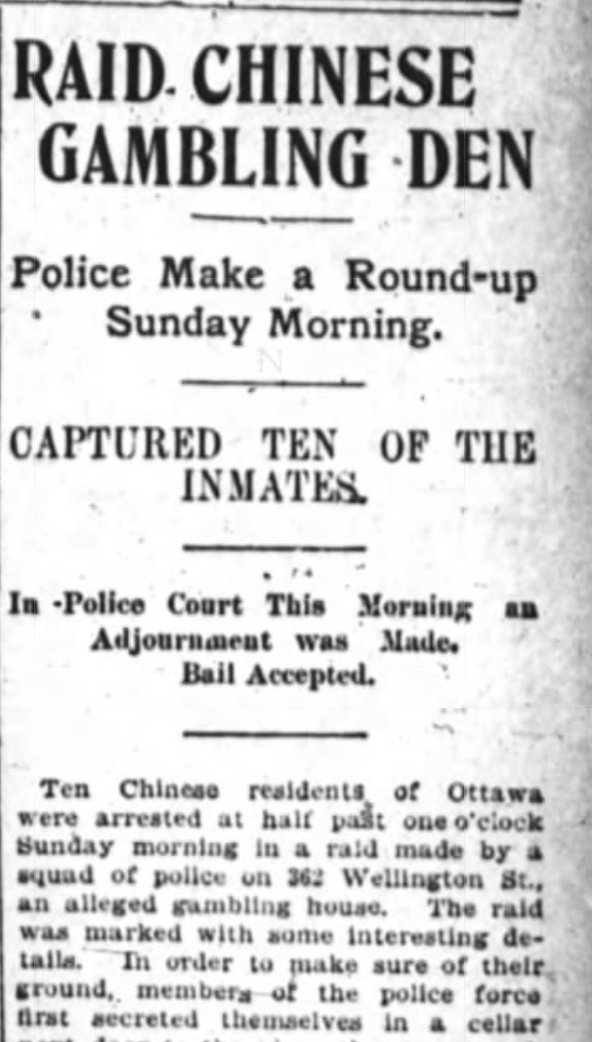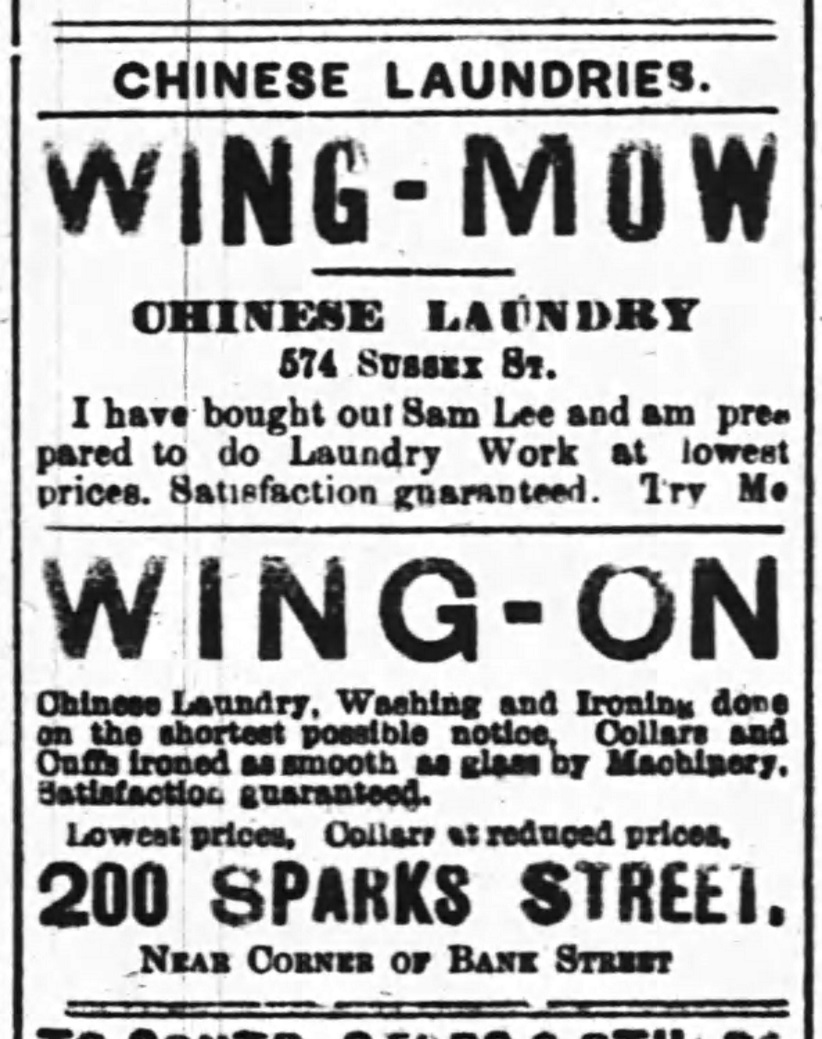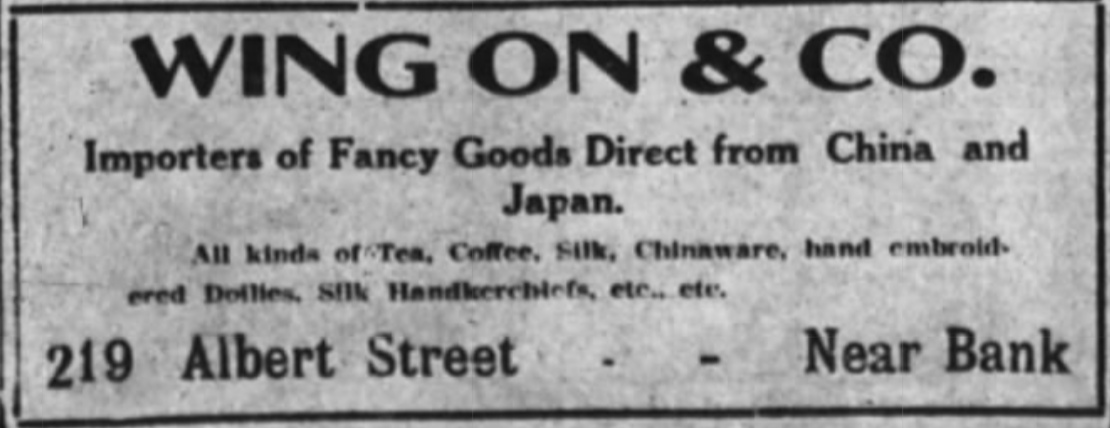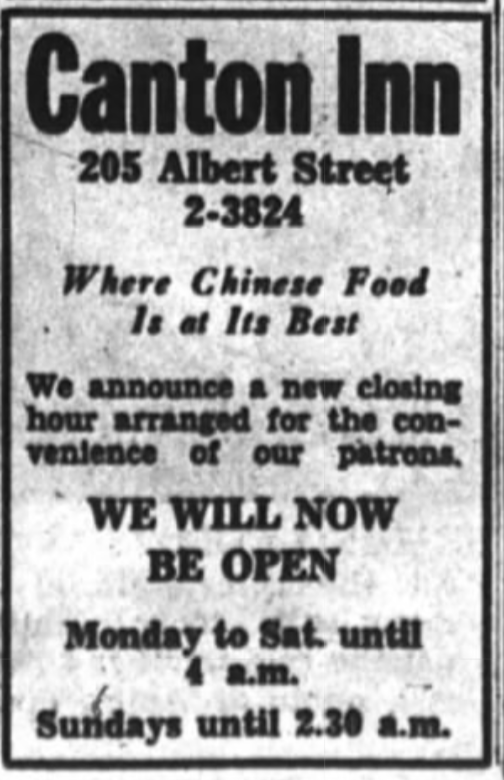Social and Community Clubs on Albert Street
Leisure, Community, and Misconceptions
Throughout the first half of the 20th century, four Chinese Social Clubs were established in along Albert Street in the original Ottawa Chinatown. In the Ottawa City directories, The Oriental Club and Chinese Amusement Clubs can be found with street addresses. However, the Dai Lou and Moo Chung Clubs were present as well. Their success can be understood through the Chinese community present in Ottawa during these early decades. Aside from the five original families who were established in Ottawa by the 1940s, a large majority of Chinese Otttawans were single men who had moved to Ottawa to find work. Many of them couldn’t afford to bring their wives and children to Canada because of the $500 head-tax imposed by the government.
In 1921, only 268 Chinese lived in Ottawa, of whom around 10 were women. The immigration restrictions were creating a community with a tight-knit but ageing population. For this group, the social clubs were one of their only places to go to enjoy their time off of work. Thus, the clubs were frequented often and became some of the main community spaces.

A Place of Criminality?
Unfortunately, there was a common and unfounded perception of the Chinese social clubs as places of compulsive gambling. Despite the small number of Chinese who lived in Ottawa during the 1920s, a large number of arrests made during those decades featured Chinese who were perceived to be conducting criminal activity.
Investigations into the Social Clubs yielded little, however. The clubs most often featured a room with men drinking tea and playing various games, such as Mah Jong. The racialized perception of “compulsive gambling” was thus unproven.
Changing face of the Social Club
This perception of criminal behaviour stigmatized Chinese social clubs, and also contributed to the decline in their use. However, the decline can also be seen during the expansion of the community itself and subsequent broadening social activities. Many children of the original families attended university and worked jobs that integrated them into the larger Canadian community. They were born and raised Canadians, which can be seen in their leisure activities- such as the Chinese Aces Hockey Team, made up mostly of children from those original families.
Furthermore, social clubs were not the only space for the Chinese Community to meet up. Sue Wong, owner of the Lick Yang Grocery, was involved with the United Church, as were many other Chinese living in Ottawa. Church associations, as well as Buddhist associations were other places of social gathering. Thus, the loss of the Oriental Club and Chinese Amusement Club on Albert Street reflects the ongoing transformation of the Chinese community within the city, rather than a decline of social activity.



